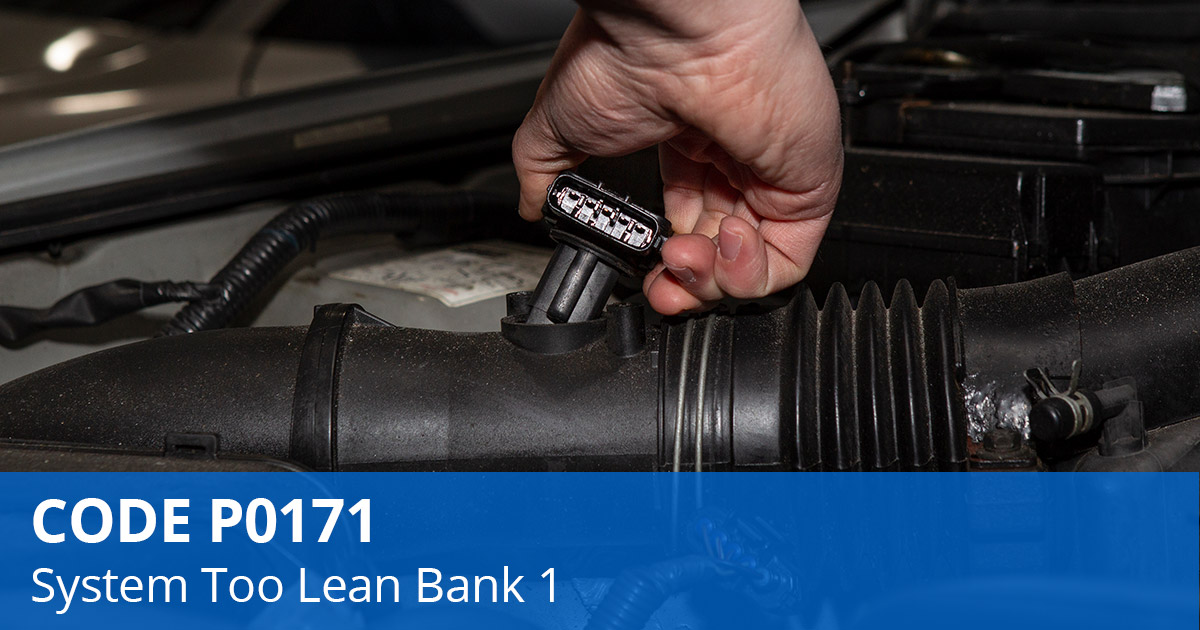Decoding the GM 5.3L P0171 Code: A Comprehensive Guide
That dreaded check engine light has flickered on, and your trusty OBD-II scanner reveals the cryptic message: P0171. For owners of GM vehicles equipped with the popular 5.3L engine, this code is a familiar, and often frustrating, sight. What does this code mean, and more importantly, what can you do about it? This comprehensive guide will delve into the intricacies of the GM 5.3L P0171 code, providing you with the knowledge and resources to tackle this common issue.
The P0171 diagnostic trouble code (DTC) indicates a "System Too Lean (Bank 1)." In simpler terms, this means the engine's computer is detecting that the air-fuel mixture on the side of the engine containing cylinder number one (Bank 1) is lean, meaning there is too much air and not enough fuel. This imbalance can lead to reduced performance, decreased fuel economy, and potential damage to the engine if left unaddressed. Understanding why this code appears is the first step in resolving the problem.
The P0171 code has been a persistent issue for some owners of GM trucks and SUVs with the 5.3L engine, especially in models from the early 2000s. While advancements in engine management systems have reduced its frequency, it remains a relevant topic for many. The importance of addressing this code promptly cannot be overstated. A lean condition can lead to increased engine temperatures, detonation (knocking), and potentially catastrophic engine damage.
Several underlying issues can trigger the P0171 code on a GM 5.3L engine. Common culprits include vacuum leaks, faulty mass airflow (MAF) sensors, malfunctioning oxygen (O2) sensors, a failing fuel pump, or even a clogged fuel filter. Identifying the specific cause requires a systematic approach, often involving careful inspection and testing of various components.
Understanding the intricacies of your vehicle's engine management system is crucial when dealing with the P0171 code. The system relies on a complex network of sensors to monitor and adjust the air-fuel mixture. When a sensor malfunctions or provides inaccurate readings, it can throw off this delicate balance, leading to a lean condition and the dreaded P0171 code.
A vacuum leak is a common cause of the P0171. Check vacuum hoses and intake manifold gaskets for cracks or leaks.
A faulty MAF sensor can also trigger the code. Cleaning the MAF sensor with a specialized cleaner can sometimes resolve the issue.
Failing O2 sensors can provide inaccurate readings to the engine control module (ECM). Replacing these sensors might be necessary.
Advantages and Disadvantages of Addressing the P0171 Code
| Advantages | Disadvantages |
|---|---|
| Improved fuel economy | Cost of repairs |
| Restored engine performance | Time involved in diagnosis and repair |
| Prevention of further engine damage | Potential for misdiagnosis |
Best Practices:
1. Use a quality OBD-II scanner to retrieve and clear the code.
2. Inspect vacuum hoses and intake manifold gaskets for leaks.
3. Clean the MAF sensor.
4. Test and replace O2 sensors if necessary.
5. Check fuel pressure and replace the fuel pump or filter if needed.
FAQ:
1. What is the P0171 code? - System Too Lean (Bank 1)
2. What causes a P0171 code? - Various factors, including vacuum leaks, faulty sensors, or fuel delivery problems.
3. Can I drive with a P0171 code? - It's best to address it promptly to prevent further damage.
4. How much does it cost to fix a P0171? - Costs vary depending on the underlying cause.
5. How can I prevent a P0171 code? - Regular maintenance and timely repairs can help prevent this issue.
6. Is the P0171 code serious? - Yes, it can lead to engine damage if ignored.
7. Can a dirty air filter cause a P0171? - Possibly, although it's less common than other causes.
8. What tools do I need to diagnose a P0171? - An OBD-II scanner, a vacuum gauge, and possibly a fuel pressure tester.
Tips and Tricks:
Consult online forums and resources for specific advice related to your GM 5.3L engine model year. Documenting your troubleshooting steps can help in diagnosing the problem.
The P0171 code, though common, shouldn't be taken lightly. Ignoring this diagnostic trouble code can lead to decreased performance, reduced fuel efficiency, and potentially costly engine damage. By understanding the causes, symptoms, and diagnostic procedures outlined in this guide, GM 5.3L owners can take proactive steps to resolve the P0171 issue and keep their vehicles running smoothly. Addressing this code promptly not only restores engine performance but also ensures the longevity of your vehicle, saving you time, money, and frustration in the long run. Don't let the P0171 code be a recurring nightmare – take control and address it head-on with the knowledge and resources at your disposal. Consult with a qualified mechanic if you are unsure about any of the diagnostic or repair procedures.
Unleash the airy coolness benjamin moore jet stream
Diy outboard motor stand conquer your boat motor storage
Farrow and ball green bedroom ideas inspiration

Code P0171 Ford Ranger | Innovate Stamford Now

2005 Toyota Corolla P0171 Code | Innovate Stamford Now

Ford Ranger Codes P0171 And P0174 | Innovate Stamford Now

2007 Dodge Charger Code P0300 | Innovate Stamford Now

P0171 Code Ford Fusion | Innovate Stamford Now

Chevy P0300 Engine Code | Innovate Stamford Now

Toyota Engine Code P0171 | Innovate Stamford Now

Gm Engine Code P219a | Innovate Stamford Now

P0171 P0174 GM vehicles | Innovate Stamford Now

Opel Astra J 14 Turbo A14NET Problème de valve PCV | Innovate Stamford Now

2000 Cadillac Escalade P0171 And P0174 | Innovate Stamford Now

P0171 Code Español | Innovate Stamford Now

Purge Valve Function In A Car | Innovate Stamford Now

gm 5.3l p0171 code | Innovate Stamford Now

Code P0171 Ford F150 | Innovate Stamford Now